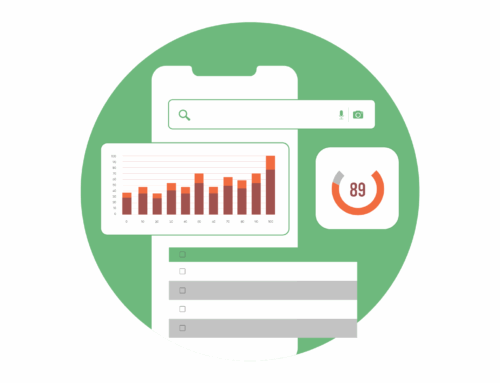Here’s a little not-so-fun fact. Despite your best efforts, sometimes your traffic will shoot through the roof, and other times it will all come crashing down
It looks something like this. After many sleepless nights of working on their content, website owners publish an amazing piece of article that they know is going to help people and make the internet a better place. But sometimes, the opposite happens. Their traffic ends up dropping instead of going up
Discouraged from that disaster, they leave their site and focus elsewhere. Out of nowhere, their traffic ends up rising tremendously, even though they hadn’t touched it for ages.
This uncertainty is what makes most businesses hesitant to invest in their SEO. Just when you think you’ve got everything down to a science, the exact opposite ends up happening.
So when many people say that SEO feels like throwing darts blindfolded, we know why they feel that way. But the thing is, it doesn’t have to be that way. All thanks to modern SERP checkers.
Table of Contents
Everything You Need To Know About a SERP Checker
To understand what a SERP checker is and what it does, you first need to understand what we mean by a SERP in the first place.
SERP stands for Search Engine Results Page. To help you better visualize it, think of the last time you opened Google and searched for “best pizza”.
The moment you hit enter, Google most likely showed you a page full of enticing pizzerias near you, along with some review sites like Yelp and other links. This page containing all the links for your searched keyword is what’s called a SERP in marketing lingo.
With that description of the SERP out of the way, let’s move forward.
What Does a SERP Checker Do?
To truly understand what a SERP checker, let’s consider the primary purpose of checking SERPs first.
Any campaign requires a way of measuring results to check if it’s working or not. For ad campaigns, that’s typically the number of people who saw the ad, clicked on it, bought a product, and so on.
An SEO campaign also has a measurable goal, and that’s the position your website shows up at for your target keywords, aka your keyword ranking.
A painstakingly slow way to do that is by manually searching each keyword on Google and finding your website on the SERP. This whole process is what you’d call checking the SERPs.
As you can imagine, doing that by hand would be extremely slow and inefficient. Not to mention, the results would be inaccurate as we highlighted in our article on checking keyword ranking in Google.
And that’s exactly where a SERP checker comes in. Let’s see how.
How Does a SERP Checker Work?
A SERP checker does the same thing as you’d do manually, but it does so automatically 24/7 in the most accurate way.
A professional SERP checker does that by having servers across the world. Each server contains custom-coded systems to search your target keywords in a private and untraceable way so the results are as pure and accurate as possible.
The best SERP checkers can check your position up to 10 pages deep or even lower. Since most pages show up very low, this deep checking lets you see how your page is doing from day one. Trust us, nothing sucks as much as not knowing where your brand new article is ranking for months.
The Only SERP Checker You’ll Ever Need
Obviously, some SERP checkers are better than others. So if you’re serious about your marketing and want to get a world-class solution, Zutrix is exactly what you’re looking for.
As an AI-powered platform, Zutrix monitors your keyword rankings in real-time and offers a variety of notification options. So whether you love using Slack, Telegram, or good old email, you’ll always know exactly what’s going on with your website’s rankings. All thanks to the instant notifications of this modern platform.
Ready to try Zutrix? Well, stop reading and see the power of intelligent SERP checking today.




